Which boilers for home heating are better: a review of
homes are paying increasing attention to boilers that do not operate from the main gas, but from alternative fuels. And there is something to choose from. In addition, there are interesting options on the market that are powered by electricity.
In this article we will understand what are the heating boilers for the house and what are the features of each option. After studying such information, you will be much better oriented in existing sentences, and accordingly the selection process will become much easier.
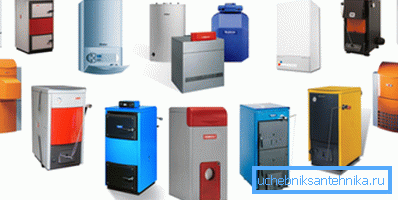
But let's begin the review with the main and most popular question.
What is more profitable - gas, wood or electricity
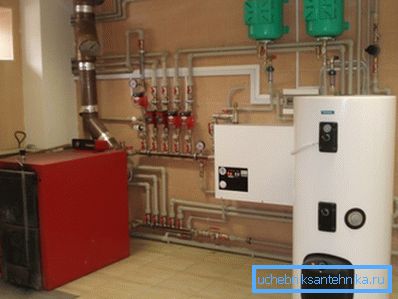
In fact, there can be no clear answer simply because each situation is very individual. Consider in the table below - why this is the case.
| Type of energy: | Features: |
| Gas. | It seems to be all clear - this fuel is different in that its price is quite reasonable and there are almost no interruptions in supply. However, this is one side of the issue, and there is another - if there is no supply to the house, the connection costs can be fantastic. And it often turns out that it is cheaper to overpay for electricity over the course of 20 years than to bring gas to the house. |
| Electricity. | It is considered that such a heating boiler for the house is very costly in terms of payments for energy. However, there are options - subsidies, non-standard boilers, etc. But, of course, if there are regular interruptions in the region with an electrician, then this solution is not an option in any case. |
| Firewood and liquid fuels. | If there is no gas, there is an interruption in the light - then this fuel will inevitably have to be used. However, boilers based on it should be taken into account as an additional option - for example, such heaters can be turned on when there is temporarily no electricity. Or, for example, when there is a large amount of firewood - it makes sense to pay for gas, when you can warm up the house without any financial costs. |
As you can see, it turns out that really the choice should be made only on the basis of the particularities of the situation. In order to help you decide as much as possible, we will proceed to the review of specific characteristics of boilers using a particular fuel.
Types of boilers
It should be noted that we will consider only those options that have been tested in practice for more than one year. Absolutely new technologies that have just appeared - it does not make sense to disassemble, because the features of their operation are simply unknown.
Let's start with firewood and diesel fuel.
Solid and liquid fuel heaters
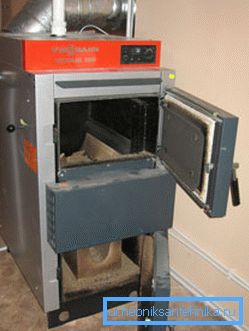
In fact, the devices are ordinary furnaces that have a combustion chamber and chimney. However, this is not so simple, because there are many models on the market, the principle of operation of which is fundamentally different from the usual stoves, for example.
The fact is that long-burning furnaces have appeared - in them the flame does not move upwards, but vice versa.
This technology has the following advantages:
- The burning time of firewood on one tab increases - very often it can reach up to 30 hours!
- The efficiency of the boiler of this type increases to 92%. Here, of course, it all depends on the model of the stove and on how well the house is insulated, but in general such household heating boilers have this property - low consumption of firewood with high heating efficiency.
- Wood-fired heating boilers of the modern type can heat the premises either by air flow (with the help of special air ducts) or with water radiators.
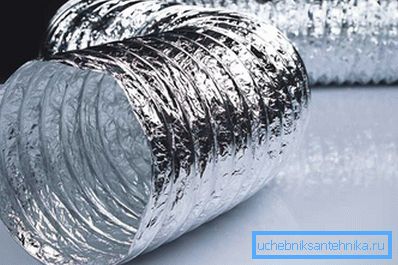
- Devices need not be installed in a residential area, since the combustion efficiency is so high here that all the heated air goes either to heat the coolant or to the hoses. That is, the instruction of such devices allows you to mount them in the back rooms, and often right on the streets.
If we talk about the shortcomings of such boilers, then we can distinguish such a moment as the high initial cost of a truly good product. Of course, there are many cheap as well as handicraft options on the market, however, their operating conditions will not be as comfortable as in the case of expensive devices.
Note! This type of boiler can work effectively not only on wood, but also on various waste! For example, on cones, sawdust, brushwood, straw, etc. In some situations, this feature can be very convenient and profitable.
As for modern products that work from diesel or waste oil, in principle, this option is good only for those who are unable to get another fuel. Still, burning diesel fuel is not quite the right thing in terms of environmental safety.
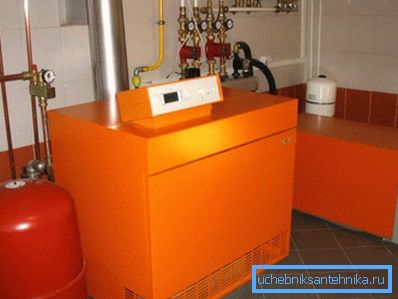
Well, in terms of efficiency and features, the situation is the same as in the case of solid fuel analogues - it is better to choose expensive models - they are highly efficient and can work with high-quality water heating systems.
Now let's talk about electrical analogs.
Electrical - Tenovy and induction devices
It may also seem that everything is extremely simple - the heating element heats the water, which then enters the radiators.
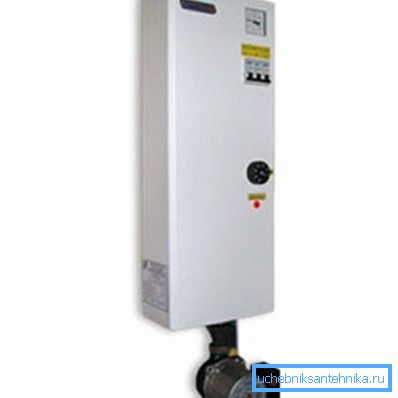
In fact, there are lots of nuances.
- Heating elements have a not very long service life, because scale accumulates on their surface rather quickly. This significantly reduces the quality of heat transfer - in standard situations a layer of scale 1 mm thick reduces the efficiency of the boiler by about 10%!
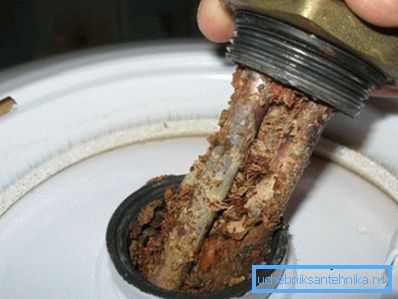
- It is not profitable to acquire an electric heating boiler for a house in the case when the volume of coolant in the radiators is rather large. This happens, for example, in Soviet cast iron radiators. But when installing modern panel radiators - it is quite possible to heat water for them with the help of electricians.
- If such devices are equipped with cheap automatics, then you are in the process of using more than once that you regret that you saved money on this item.
The fact is that only normal, expensive automation allows you to properly consume electricity - in other words, the boiler is turned on only when it receives a signal that the temperature in the rooms has dropped below the set point. Cheap control panel will not be so sensitive, and this will lead to more frequent switching on heating elements and, accordingly, to large financial expenses.
In addition to conventional heating boilers, there are also induction counterparts. In them, the core is heated by alternating current, which allows more efficient use of electricity.
In principle, it is believed that an induction boiler for heating a house is more advantageous during operation, as the efficiency is higher and the power consumption is lower - but this product is very expensive to buy.
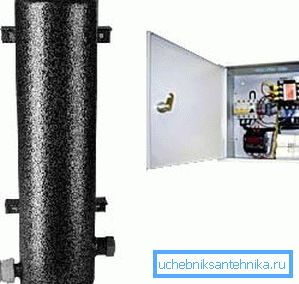
Note! The cost is fully justified, because the quality service life of good induction products is about 25-30 years, not 5-6, as in the TENovyh analogues. So there is something to think about.
Now touch, too, seemingly standard products.
Gas heaters
If you have the ability to connect gas appliances, then pay attention not only to devices with natural water circulation, but also to turbocharged models.
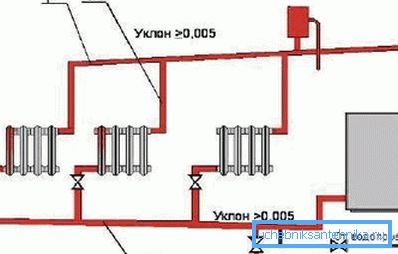
The first option is good because there is complete autonomy of work - that is, there is no dependence on the supply of electrical current. The disadvantage is a low level of efficiency if there is no additional circulation pump in the system.
And the second solution is interesting for high efficiency and the possibility of sensitive automatics setting. But the turbocharged products are tied to the supply of electricity, since the control panel and the motor of the turbine work exactly from it.
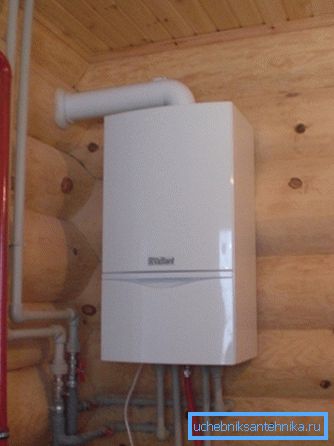
In principle, the last moment is partially solved - since you can install special batteries from which the device can be powered during light outages. But all the same - 100% of the problem can not be solved only by the battery.
Advice: it is not recommended to connect any gas heating boilers for the home with your own hands, because the gas industry is in some sense a monopoly and problems may arise with the relevant authorities. It is simpler and cheaper to connect radiators to the case, and it is up to experts to entrust the installation of connections directly connected to pipelines.
On this review, you can finish and take stock.
Conclusion
We examined in detail which home heaters are now popular and in demand in the market and why. In principle, we have acquainted you with the most important points - we hope that now the choice will be made much easier.
If you want more information, then by all means watch the additional video at the end of this article.